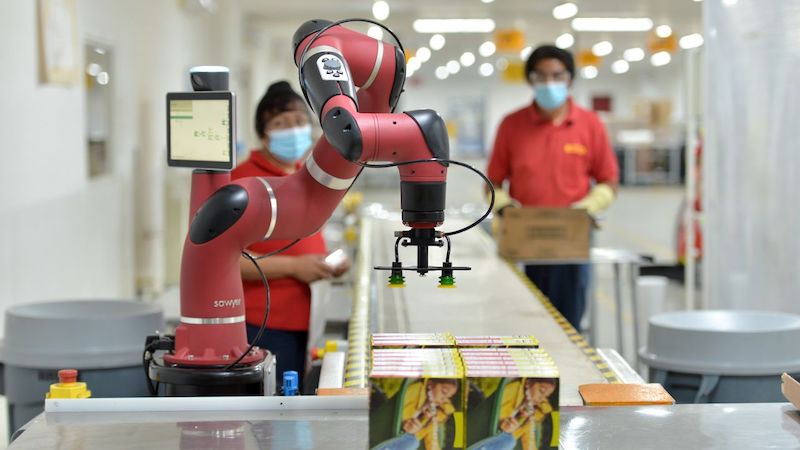Grow your business with the Discover newsletter
Logistics advice & insights straight to your inbox
Subscribe now
The Philippines is an emerging economy that is rapidly developing, and investing in digitalizing its logistics sector is a vital step needed to continue this progress. Logistics play a key role in connecting businesses, consumers and suppliers all throughout the country, making it an integral part of the national economy from transportation to marketplace design. As such, digitalizing the logistics system can help propel companies into becoming true market leaders by making the supply chain more efficient, reducing costs due to improved accuracy, enhancing communication with customers and suppliers, improving data visibility and operational management, increasing product tracking capabilities, and improving delivery times. In sum, digitalization provides immense potential for businesses in the Philippines to grow and stimulate their development, creating a positive impact not just in their operations, but also in the country’s wider economy.
The logistics sector is undergoing a transformation due to digitalization and is significantly impacting both the supply side and demand side of the industry, creating new opportunities and challenges. Read on to discover how digitalization is affecting the logistics industry from both sides of the equation:
In the Philippines, digitalization is changing the logistics sector in both positive and negative ways. On the supply side, digitalization is helping businesses reach new markets more quickly, efficiently and cost-effectively than ever before. With enhanced automated technologies and real-time tracking systems, companies are able to deliver goods and services more effectively. In addition, digitalization has enabled businesses to store and manage data more securely which ultimately plays a role in the improved accuracy of forecasting future demand of goods and services. Digitalization is revolutionizing how businesses in the Philippines run their daily logistics operations, making it an exciting time for those within the logistics sector.
The logistics industry in the Philippines is experiencing a growing trend of digitalization that is reshaping the way businesses interact with each other and their customers. This digitalization has had a significant impact on the demand side, bringing about increased convenience for customers, allowing greater access to online services and streamlining many logistics processes. For instance, automation of inventory management ensures efficient control of goods, while e-commerce solutions facilitate smoother distribution of goods resulting in reduced costs and faster delivery times. Digitalization has also opened up more opportunities for businesses to engage with customers through digital channels such as social media and web portals. Consequently, companies in the Philippines are continuously embracing new technologies to keep up with changing industry trends and remain competitive in the global market.

The Philippines' logistics sector is faced with several challenges such as congestion, lack of infrastructure, and high energy costs. In order to stay competitive in this ever-evolving landscape, businesses must embrace digitalization and make use of the latest technologies available. That being said, by leveraging technology such as sensors and artificial intelligence (AI), businesses can increase their operational efficiency while reducing their environmental impact. For example, sensors can be used to collect data on traffic patterns which can then be analyzed using AI to optimize routes and minimize delays for international shipping. This improves the efficiency of transportation networks while reducing fuel consumption and carbon emissions. Additionally, AI-powered systems can also be used to automate processes such as warehouse management and inventory tracking.
Digitalization also provides an opportunity for businesses to improve customer experience by leveraging new technologies such as chatbots, virtual assistants, and automated tracking systems. Chatbots are automated programs that are able to answer customer queries quickly and accurately without the need for human intervention. Similarly, virtual assistants are AI-powered programs that are able to provide personalized recommendations or solutions based on customer input. Finally, automated tracking systems allow customers to monitor their packages in real-time from wherever they may be located during the entire shipping journey. All these technologies help ensure that overseas customers receive a seamless experience from start to finish when it comes to ordering products or services from businesses in the Philippines.
Last but not least, digitalization offers an opportunity for businesses in the Philippines to reduce costs by automating processes such as billing and invoicing or automating communication between various stakeholders involved in each shipment or delivery process. Furthermore, by using data collected through sensors or other devices connected to the Internet of Things (IoT), businesses can gain insights into their operations which can then be used to identify areas where they may be spending unnecessarily or opportunities where they could save logistics costs by optimizing processes and streamlining operations.
As a firm believer of implementing innovative technologies to drive greater productivity and efficiency, DHL Express has embraced digitalization by incorporating various technological solutions into its operations. These include online shipment tracking, chatbots, electronic billing and payment options, automated sorting and delivery, e-commerce integration and more. Through our efforts to adopt digitalization in the logistics sector, we have been able to provide our customers with faster, more convenient, and more efficient services in the Philippines.
Open a DHL Express business account and deliver an unparalleled customer experience to your consumers today.